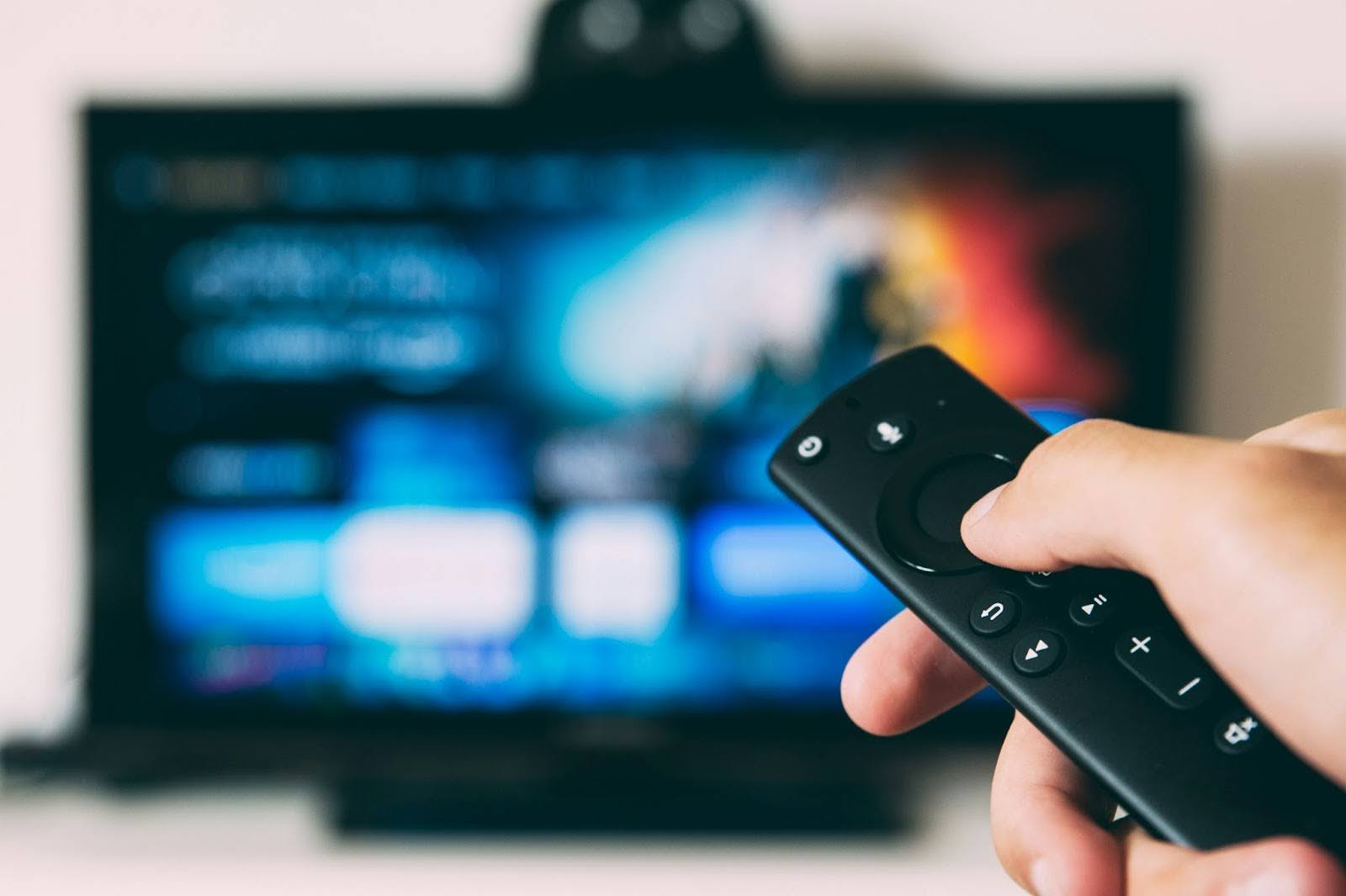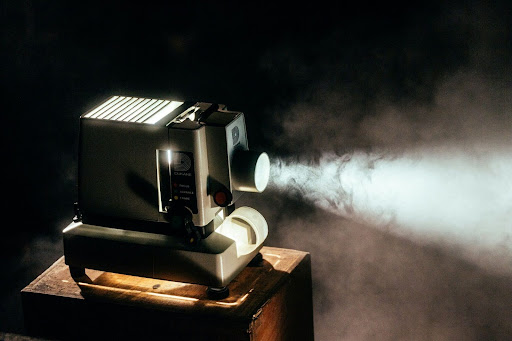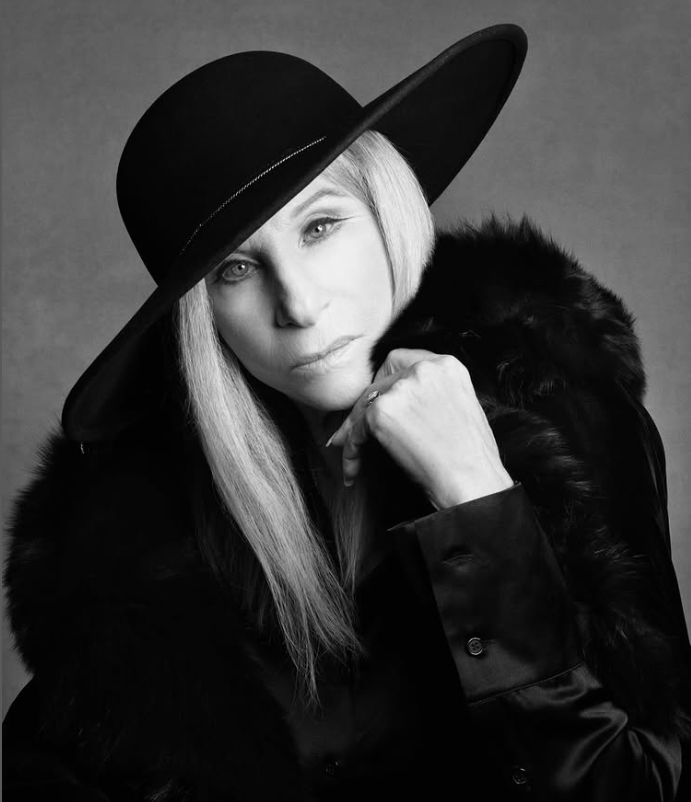CULTURE
What Makes a Troll: Why Stars Like Jesy Nelson Suffer From Social Media Abuse
09 Sep, 19

Jesy Nelson at Capital's Jingle Bell Ball, The O2, London
Photo by David Fisher/Shutterstock
Jesy Nelson should have been on top of the world.
Instead, she was in her room, reading and rereading cruel comments from trolls on the Internet.
It was the night her band, Lil Mix, performed Nicki Minaj’s “Super Bass” on The X Factor and garnered sweeping praise from the judges. After the performance, the group gathered to rewatch their shining moment on YouTube. Someone suggested reading the comment section.
To Nelson’s surprise, almost every comment was a critique of her appearance.
“I was very naive,” said Nelson in an interview promoting her documentary, Jesy Nelson: Odd One Out, which is a confessional exploration of the effects of online abuse on her mental health. “I thought it would be people giving their opinion on our performance,” she said. “But nearly every comment was about the way I looked: ‘She’s a fat ugly rat’; ‘How has she got in this girl group?’; ‘How is the fat one in this?'” As they read one vicious comment after another, tension filled the room, “because no one knew what to do or how to react,” she finished.
That night was the start of a firestorm of online bullying, which would haunt Nelson as she rose to fame along with the three other members of Lil Mix. Instead of avoiding the abuse, she became “obsessed” with reading negative comments about herself.
“It was like I wanted to hurt myself,” she said. “The only way I can describe the pain is like constantly being heartbroken.” While she tried going to therapy, her packed schedule made that nearly impossible. The dark spiral led her to an eating disorder and eventually caused her to attempt suicide in 2013.
Things only began to shift when some tourmates convinced her to delete social media. “It was a long, hard process because I didn’t want to help myself,” she said. “But it wasn’t until I deleted Twitter that everything changed for me and I slowly started to feel normal again. Don’t get me wrong, I still have days when I feel sh*t in myself but instead of beating myself up about it and being miserable, I think: ‘OK, I’m going to have my moment of being sad, and I’ll be over it.’ Before, I didn’t let myself be sad.”
Jesy Nelson: Odd One Out explores these painful years, as well as her slow and ongoing progression out of the woods. It also draws attention to the correlation between fame, social media abuse, and mental health issues, raising questions about why people choose to troll, as well as what fame and success really mean.
Jesy Nelson: Why I Made ‘Odd One Out’www.youtube.com
The Stars Aren’t Alright: Fame, Anonymity, and Social Media Abuse
While many of us might think of our idols as almost inhuman, or at least rich, successful, and beloved enough to be immune to criticism, lots of stars before Nelson have come clean about the fact that this is not the case. More celebrities have been speaking out about mental health issues over the past decade than ever before, making it clear that success has little to do with happiness, especially in the 21st century. Everyone from Justin Bieber to Cara Delevigne to Chrissy Teigen to Dwayne Johnson has come clean about their mental health challenges in recent years, and many of them have cited the Internet’s culture of reactivity and cruelty as a trigger for their suffering.
Though this rise in stars’ confessions may be a reflection of a societal increase in mental illness awareness coupled with a reduction in stigma about speaking out, it also points to issues innate in the entertainment industry’s expectations for artists.
Jesy Nelson’s documentary and experiences are examples of the struggles that many performers, particularly musicians, face as they attempt to balance their careers with their prominence in the public eye. According to a May 2019 study, a shocking 73% of musicians have shown symptoms of mental health issues. This may be a result of the music industry’s increasingly unsustainable expectations, which include relentless touring schedules and 24/7 social media presences. Expected to constantly make money while maintaining an image of authenticity, many musicians and artists struggle to temper their personal values and artistic integrity with the need to sell products and align with their managerial teams’ expectations.
According to awal.com, another reason for the mental health crisis among musicians might be the fact that many artists tend to turn to the Internet for validation, connections, and feedback—and unlike Nelson, many of them can’t afford to stop. Due to social media’s rising importance as a mechanism for distribution, many musicians cannot avoid being exposed to online cruelty even if they don’t want to engage with it. “In music, the internet is egalitarian where everybody’s opinion is equal — where everyone can tell you you’re sh*t or you’re great all day long. You render yourself quite vulnerable,” says Dr. George Musgrave, a musician and lecturer at the University of Westminster.
Famous people are not exempt from this vulnerability, no matter how many followers they have. Many stars have confessed that they read comments about them, sometimes obsessively, and like Nelson, some of them have struggled to quit their masochistic addiction to cruelty.
For example, Selena Gomez—who has the most followed account on Instagram—has said that she struggles to filter out negative comments. “I delete the app from my phone at least once a week,” she stated. “You fixate on the negative ones. They’re not like, ‘you’re ugly.’ It’s like they want to cut to your soul.”
Like the insults that tormented Jesy Nelson, the comments that most affected Gomez were rigorous as well as cruel, and her fame presented a flimsy barrier against them. “Imagine all the insecurities that you already feel about yourself and having someone write a paragraph pointing out every little thing, even if it’s just physical,” she added.
Demi Lovato has faced similar criticism. After struggling with online bullying for years, she’s now begun to speak out against online trolling. “I think that some people use bullying as a way to fit in, and I’ve noticed it’s not just the ‘cool’ kids doing it anymore,” she said. “Sitting behind a computer gives people a sense of anonymity, but everyone needs to realize that words—even the ones they write online—have a strong power to hurt people.”
One tragic common thread in most of these incidents is that, more often than not, they involve people lashing out and critiquing women’s bodies. In reality, most of these women are average-sized (Nelson is a size 16, which is closer to the average size of the UK woman than any of the other members of Lil Mix).
After years of suffering from an eating disorder, Nelson is telling her story in part to shed light on the potentially deadly consequences of the utterly meaningless (and profit-driven) industry that is body-shaming. “We need to talk about it,” added Nelson, “because the more we do, the more we are empowering girls to look at themselves in the mirror and go, ‘I’m a normal girl, there’s nothing wrong with my body, this is normal, and I should love this,’ instead of looking at Instagram and comparing themselves to other girls.”
No one deserves to be bullied because of their appearance, no matter what they look like, but the fact that these women are being attacked for simply looking like most other women reveals an underlying thread of misogyny that likely stems from deep-rooted insecurity.
Still, there are plenty of insecure, bored, and depressed people with social media accounts who don’t lash out at famous people just because they can. So what really makes someone decide to be a troll?
What Makes a Troll: The Psychology of the Internet’s Bullies
Traditional bullying involves a power dynamic wherein the strong target the weak, but online bullying usually involves anonymous nobodies attacking people who tend to be more successful than they are. This has become known as “trolling.”
Psychology Today cites eight reasons why people troll: anonymity, perceived obscurity, perceived majority status, social identity salience (a.k.a mob mentality), being surrounded by friends (or being inside a bubble of people with similar opinions), desensitization to cruelty, personality traits like moral superiority, and a perceived lack of consequences. Essentially, people who have spent a lot of time online, who feel like they’re anonymous, and who are surrounded by people with similar beliefs are likely to launch cruel comments into the void of the Internet.
Additional studies have found that trolls are more likely to be males who possess relatively low levels of empathy and high levels of narcissism. Furthermore, these trolls are also usually hooked on the feeling of adrenaline that follows a sh*tpost, and they’re more likely to post while in a bad mood. However, though we tend to view trolls as groups of angry men living in their parents’ basements, anyone can be a troll in reality. All it takes is a delayed subway, a string of brief comments, and a momentary lapse in caring about other human beings. Unfortunately, this brief, inconsequential lapse can take the form of insults that can permanently wound another person.
So, how do we prevent trolling? Confessions like Jesy Nelson’s can help, as they make dents in the Internet’s implicitly simulatory nature and show that though our comments are digital, they can have very real consequences. On the more extreme end, the television personality Gemma Collins has called for a boycott against social media in response to Nelson’s confession about her suicide attempt.
On the other hand, trolls tend to seek out the adrenaline rush of enraged responses, so sometimes it’s better not to “feed the trolls,” as the saying goes. Instead of “taking down” trolls (and effectively giving them the rush of attention they’re seeking), we might focus on rewarding positive behavior on the Internet, praising people who are using social media for good rather than evil, while letting trolls fade into the shadowy obscurity from which they came.
All in all, there’s no clear solution as to how to stop trolling, but what is clear is that no one is immune to its traumatic effects, especially not the stars.
Though she was eventually able to quit social media, Jesy Nelson made herself vulnerable for far too long. While she was playing the part of a carefree and powerful woman, she was cripplingly suicidal—and it’s hard to think of something that better embodies the gilded nature of fame, success, and superficial empowerment. There is a creeping rot at the heart of our cultural obsession with performative, flashy success, self-improvement, and relentless competition. Luckily, this obsession has been tempered by social media’s burgeoning culture of confession and honesty, and many people affected by our society’s unrealistic expectations have used social media to speak out against abuse.
Fortunately, Nelson was able to get help and is adding her voice to this movement. She now has a message for anyone who might be struggling, either because of social media bullying or because of any of the innumerable reasons society gives us to hate ourselves. “There must be so many women and girls that feel not good in themselves and are struggling with mental illness, and I thought if I’ve overcome it, I want people to know there is a light at the end of the tunnel,” she told Emily Atack on the U.K.’s Lorraine Monday morning. “For me, at that point, I really honestly felt like there wasn’t and if you’d have told me four years ago that I’d be sat here talking about it feeling stronger than ever I would never have believed you.”
While not everyone can access the resources that Nelson could, her story is still a vital glimpse into just how deadly the Internet’s toxicity can be, and it’s proof that there is light beyond the glow of our cell phones.
Jesy Nelson: Odd One Out was released on BBC Three on September 12.
If you or a loved one is struggling with mental illness or thoughts of suicide, call 1-800-273-8255 or find more resources at asfp.org.
- Little Mix’s Jesy Nelson Reveals Attempted Suicide | PEOPLE.com ›
- Little Mix’s Jesy Nelson on mental health struggles after online … ›
- Jesy Nelson reveals she attempted suicide in her new documentary ›
- Jesy Nelson interview: Little Mix star opens up about suicide attempt … ›
- Little Mix star Jesy Nelson tried to kill herself after cruel online trolls … ›
- Little Mix’s Jesy attempted suicide after X Factor trolling ›
- Little Mix’s Jesy Nelson Recalls Attempting Suicide Over Cyberbullying ›
- Jesy Nelson: Little Mix singer reveals she attempted suicide after … ›
- Jesy Nelson opens up about suicide attempt over vile Little Mix trolls … ›
- Little Mix’s Jesy Nelson says she attempted suicide after online abuse ›












